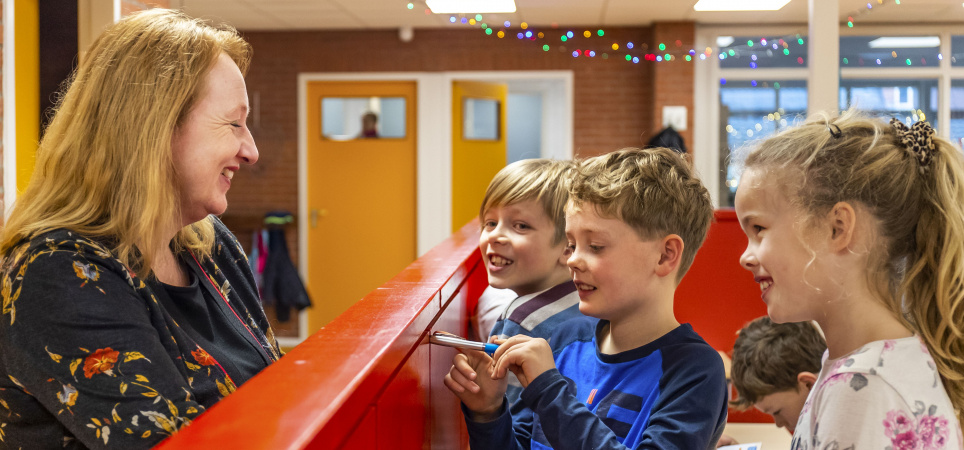AOb presents a package of requirements for suitable education
Smaller classes, more hands in the classroom and less bureaucracy: these are some of the things that the AOb necessary for suitable education to work. That writes the AOb in a letter to the House of Representatives, which will discuss appropriate education next week.

Image: Angeliek de Jonge
The House of Representatives will meet on Monday November 16 to discuss the Appropriate Education Act. In the run-up to that evaluation, the AOb go through their own evaluation process to see how teachers and support staff currently experience appropriate education. The outcomes of them are not happy. Teachers report that since the introduction of appropriate education, they have less control over the help they can provide. They are also not always able to provide students with the guidance they need.
Teachers experience more work pressure and sometimes frustration
Also from a final evaluation drawn up on behalf of the Ministry of Education, Culture and Science presents a worrying picture. Since the introduction of appropriate education, teachers have received little or no extra facilities to give real substance to the support for students. According to the researchers, appropriate education has had 'strictly speaking few direct consequences' for teachers' actions in their daily practice. Teachers do experience more work pressure and sometimes frustration.
Painful
“It has become painfully clear over the past six years that providing appropriate education in many schools is not a realistic expectation,” says AObchairman Eugenie Stolk. “The right preconditions are lacking: classes are too large to be able to see and support all students. There are also often too many students with a support request in one class, and there is a lack of enough colleagues to give substance to the support at school and in the classroom. Teachers and support staff feel that they are constantly inadequate because they cannot provide sufficient support. ”
Group size
To change that, the AOb in a letter to the House of Representatives a number of requirements on the table. Such as setting a maximum group size of 21 students per class. "In smaller classes, teachers have more time per student, it's that simple," says AObchairman Stolk. “This allows them to better follow their students and support them where necessary. There should also be more hands in the classroom. ”
In addition, teacher training should pay more attention to guiding students with specific support needs. “This requires a major overhaul of the teacher training curricula,” says Stolk. "And the implementers of appropriate education, the teachers, must be given a central role in this process."
Bureaucracy
The procedure for applying for support should also be simplified. From own research of the AOb and Reporter shows there is a lot bureaucracy.
A teacher and internal counselor or care coordinator together spend an average of one and a half days to two days preparing an application for extra support. Which then takes two to three months.
“Teachers are therefore on their own until that support is available,” says Stolk. "If it comes at all, which is certainly not always the case." The AOb calls for simplification of application procedures, whereby more reliance is placed on the professional judgment of the teacher.
Providing suitable education remains an impossible task without drastic measures
In addition, the AOb to enter a basic standard for appropriate education, so that it is clear to everyone what support can and cannot be asked of a teacher. "The minimum support a school should be able to provide varies per partnership," says Stolk. "That leads to uncertainty, inequality and misunderstood situations among students, parents and teachers." Work is currently being done on drawing up such a basic standard, but the concept is still too vague, says Stolk. "The standard must become more concrete to make it workable, and it should not be seen as a minimum standard."
reservations
Finally, the partnerships that have too high financial reserves must phase them out. From research of the Education magazine and also from the Inspection of education it appears that the amount of reserves in many partnerships is disproportionate to the risks they run. "Money intended for student support should end up in the classroom," says Stolk, "and not in the bank."
Succes
In short, a fundamental change of course is needed to give suitable education a chance to succeed. “The minister makes a large number of proposals to 'get the basics in order', but without drastic measures, providing suitable education remains an impossible task,” says Stolk. "Appropriate education requires smaller classes, more hands in the classroom and enough colleagues."


